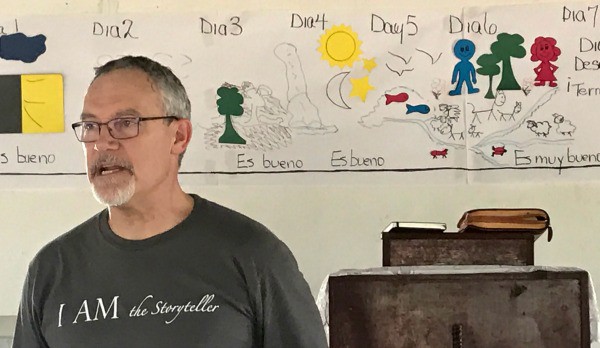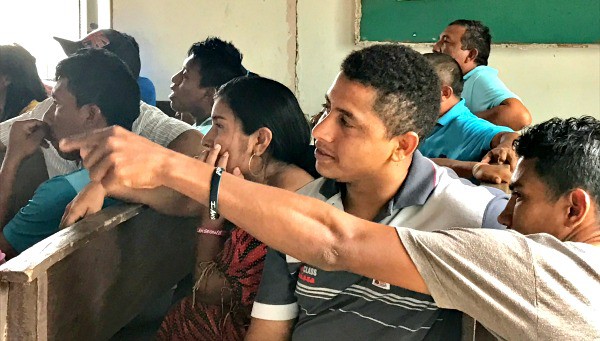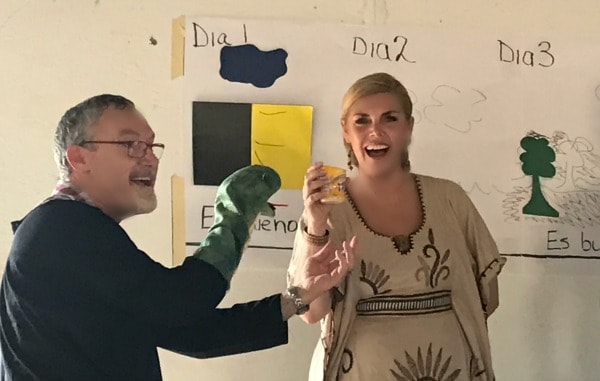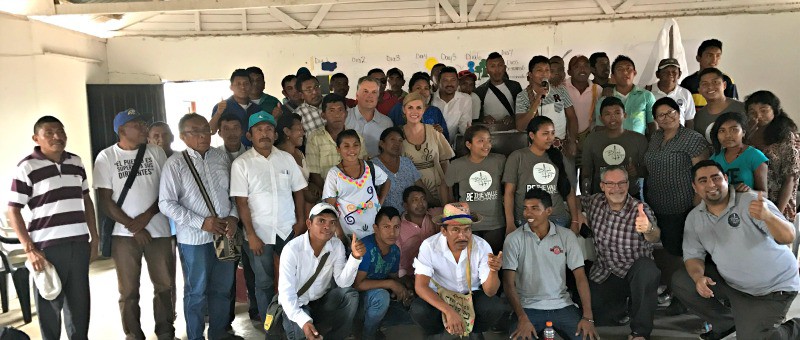I have always enjoyed a good story. As a boy I loved hearing my grandad tell me about Black Sunday and the dust storms of the Oklahoma panhandle during the “Dirty 30’s”. The moment he started he had my full attention. Later, as an adult when I became a Christian, I found myself in a conservative ”Bible believing” Baptist church. Stories were for little kids and VBS, not for adults! Sermons were for us adults, but the sermons were not as nearly as exciting as my grandad’s stories, and they were a lot harder to remember.
As I began to study the Bible I found out that, unlike the sermons I was hearing, the Bible was full of stories! It was full of exciting stories of a flood and a large ship, of wars and fighting, of giants and shepherds, and a fish so large it swallowed a man whole. The Bible is exciting! But as I grew in the Lord and was called into ministry I found that my own sermons sounded like the ones I heard as a young believer. Instead of exciting stories I was lecturing in a didactic style.
However, recently I rediscovered the power of storytelling. BJ and I were in Colombia last year with Bread of Hope to train pastors from the Wayuu tribe. What I did not realize until I was already there, is that half of the pastors and 85% of the tribe were illiterate. They have Scriptures in their own language, but only the New Testament. The church planting strategy being used is an audio Bible, the Proclaimer, from Fatih Comes By Hearing.
So faced with a large group of pastors, half of who were illiterate and none of whom had an Old Testament in their language, all of our well honed inductive Bible study techniques seemed pretty useless. We tried some things, and a few learned, but I left Colombia feeling a bit defeated. When we were invited back this year I knew something had to change, and it did!
First, God laid on my heart to simply tell them the stories from the Old Testament. I thought surely an oral culture would respond to storytelling. Second, God connected me with a man who had used that technique in India and he gave me a crash course and a lot of resources. I knew we had to start with creation but where should we go from there? The resources all listed the fall of Satan as the second story and the fall of man as the third. Creation and the fall of man made sense, but the fall of Satan? Well, I decided to listen to experience and I laid out what I wanted to say.
The first morning I asked the Wayuu, “In Wayuu culture who are the storytellers?” The response was immediate, “Oh, the grandparents! They wake the children before dawn and tell them the stories of the Wayuu.”
In that moment I knew storying was the perfect tool to teach them. I then told them the story of creation. I did not preach creation, I did not outline it, and I did not tell them about creation. I literally told them the story of creation day by day.
As I told the story we put large pieces of paper with hand drawn images on the wall to show what happened on each day. We kept it simple, Adam and Eve were just cut out figures.
They were like little kids seeing a cartoon for the first time! They were mesmerized. When I finished we had a Q & A time and then I had several of them retell parts of the story. They got it! The pastors, without any coaching from me, even volunteered to go back to their villages and tell the story to their people. “Why, yes! I think that would be great.” (insert BIG smile)
We went on with the fall of Satan and the fall of man. Soon it wasn’t just the pastors, but the whole host village that was listening. The little kids stopped playing and were listening. The building was full and there were people sitting outside and leaning in the windows listening. The people loved it!
With no Old Testament in their language they had no larger context for their faith. You see it is the Old Testament that gives us a context for our faith. Without the context, you are dropped into the Jewish, Roman world of the first century. You would find yourself asking “Who are these people?” “What is going on?” “Why does this man think he is God?” and “What is a Christ?”
But, with the stories of the Old Testament you have the history of God creating the world, a people, and a nation. There we see that men sin, and that God takes sin seriously! There we learn of the need for a sin sacrifice.
By telling them the stories, we were laying a foundation for their faith.
I realize many of you are a little hesitant to embrace storying as a legitimate evangelism/discipleship tool. Consider this, the literacy rate in the world is estimated to be about 85%. However, among unreached people groups in the world the percentages are probably reversed. The unreached people groups are in areas where life is hard and education is poor.
Even in the US it is estimated that 32 million are functionally illiterate, and 85% of the juveniles in the court system are unable to read at any more than a very basic level.
The best scenario in discipleship is a person with a Bible in their heart language studying the Word for themselves. But when they can’t read or don’t have a complete Bible, storytelling bridges the gap and enables us to reach a people we have never reached before!





